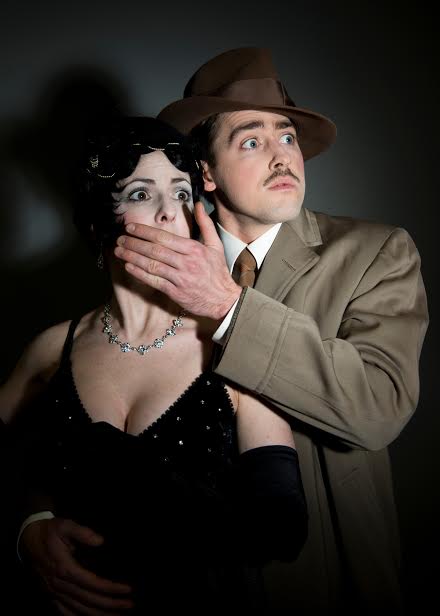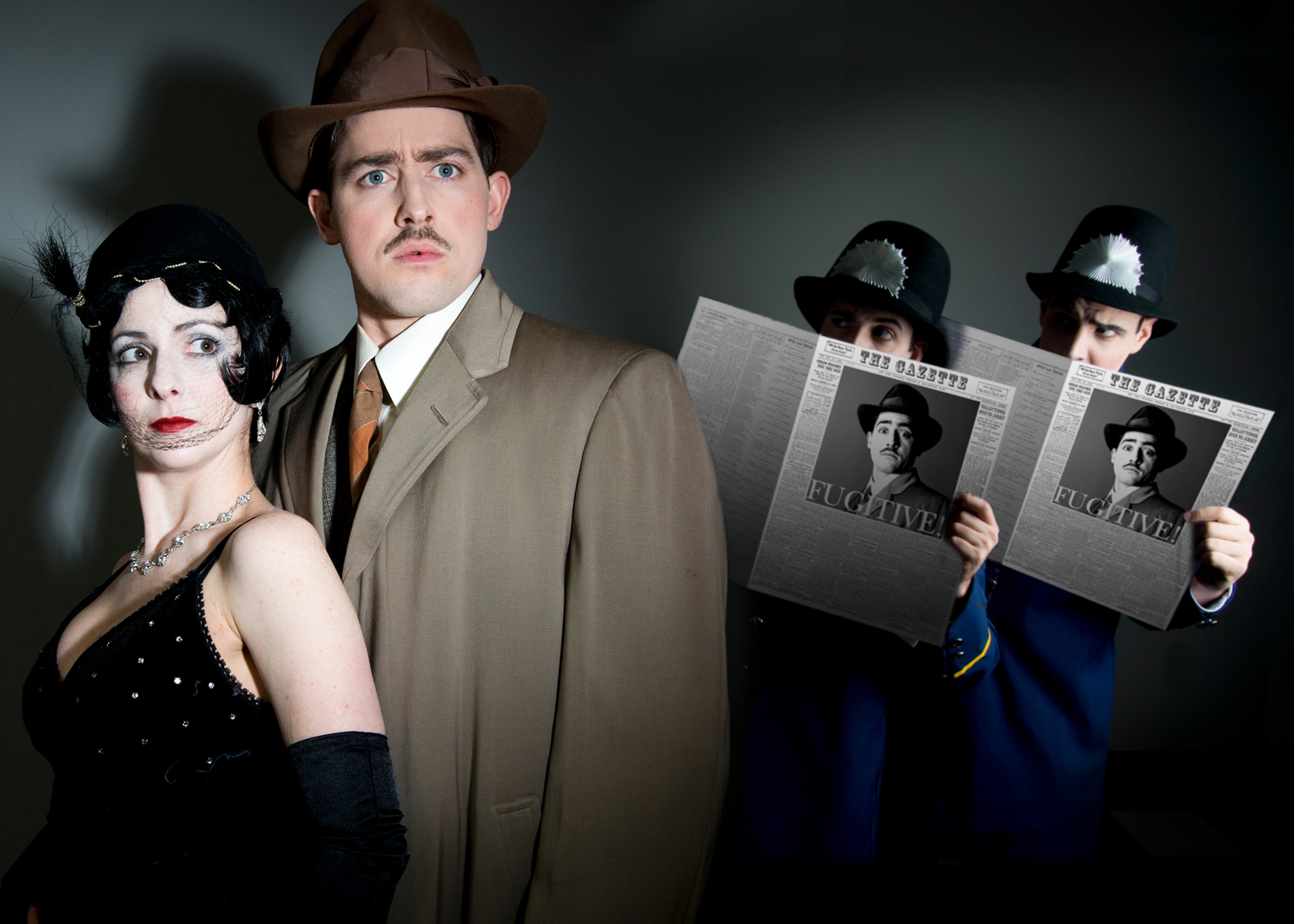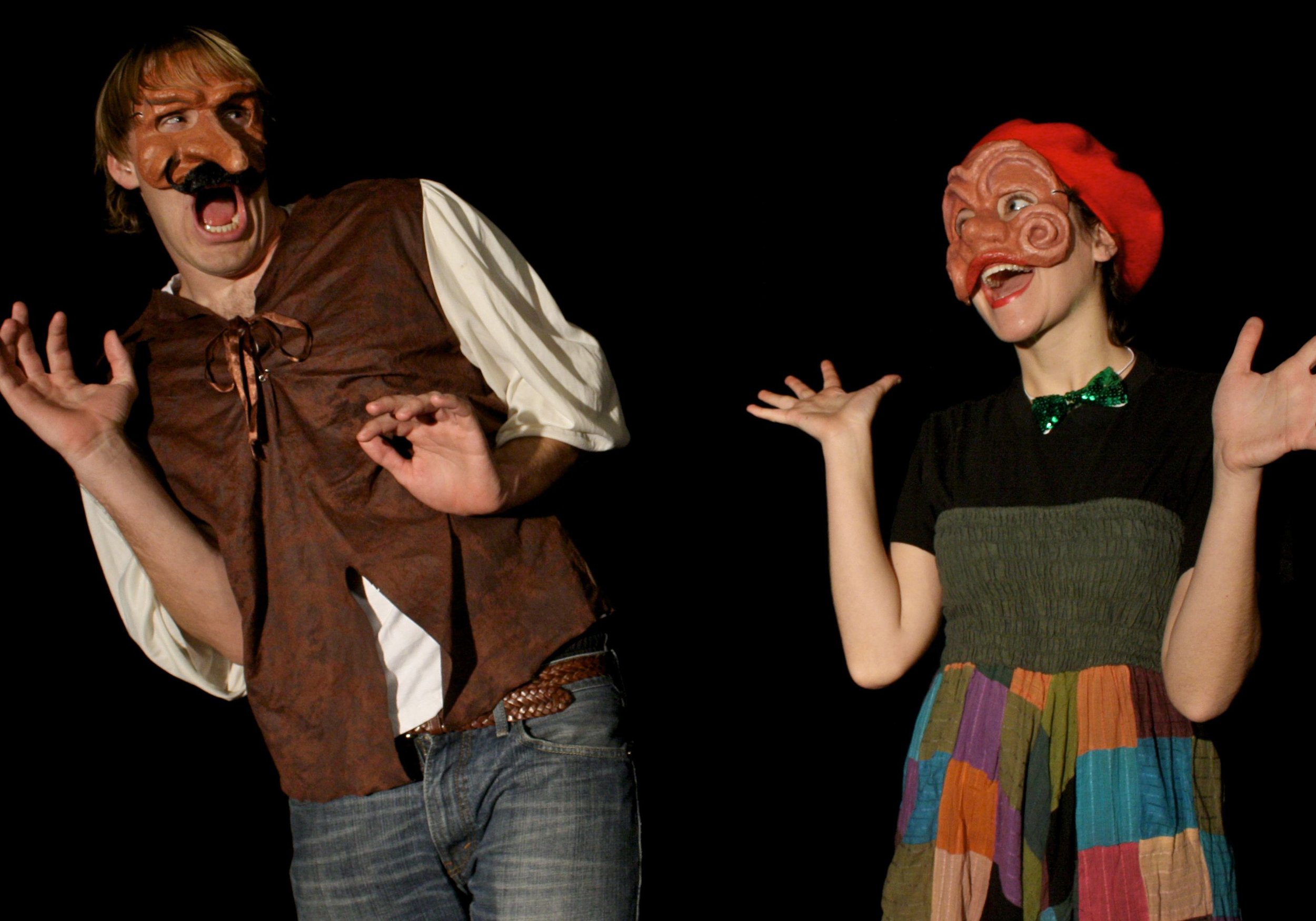The University of South Carolina Theatre Program will launch its 21/22 season in uproarious style October 15-22 with a production of Neil Simon’s raucous comedy Rumors at Drayton Hall Theatre.
Show time is at 8 p.m. Tuesday through Saturday, with additional 3 p.m. matinee performances on Saturday, October 16 and Sunday, October 17. Admission is $15 for students, $20 for UofSC faculty/staff, military, and seniors 60+, and $22 for the general public. Tickets may be purchased online at sc.universitytickets.com. Drayton Hall Theatre is located at 1214 College St., across from the historic UofSC Horseshoe. In keeping with university safety protocols, masks will be required of all audience members, actors and crew, and seating will be limited to allow for appropriate social distancing between all patrons.
Sharp-edged wit meets madcap farce in legendary playwright Simon’s hit 1988 comedy. When the first pair of guests arrive for an anniversary party at the opulent home of Charlie Brock, the Deputy Mayor of New York, they find their host unconscious, shot in the head (well…the ear lobe), and his wife missing. Wanting to protect Charlie – and themselves – from potential scandal, they fabricate a lie to tell the rapidly-arriving partygoers, setting in motion an ever-more-hilarious series of cover-ups, misunderstandings and mishaps. "Has nothing on its mind except making the audience laugh." - The New York Times
Recipient of the Pulitzer Prize (1991) and the Mark Twain Prize for American Humor (2006), in addition to numerous Tony® awards, Neil Simon was one of the most successful writers of the 20th century, with hits like The Odd Couple, Barefoot in the Park, and Biloxi Blues becoming long-running successes on stage and screen. His work has become especially personal to director David Britt, who counts Rumors as the seventh Simon play he’s helmed in the last decade.
“I am a student of Neil Simon and his writing,” says Britt. “When I was growing up, he was as popular a playwright as anybody, and I see his influence in everything I’ve seen since. I will always pay tribute to him.”
There’s an old expression, ‘I dropped my basket,’ meaning you've lost it... Everybody’s basket gets dropped in Rumors!
Although the playwright told The New York Times that Rumors was his “first farce” and “completely different for me,” the play’s humor is still classic Simon. “It’s a sarcasm that many of us in the South may not be familiar with,” says Britt of the Simon’s signature one-liners. “Our sarcasm is often very passive-aggressive, but his is straight to the point. It’s given and received with the same attitude.”
In keeping with the classic form of farce, Rumors’ comedy is rooted in characters who become completely unraveled in the wake of fast-moving chaos and absurdity. However, Britt says that Simon’s heightened characters are still totally relatable.
“Having read about Simon and the circles he ran in I think these characters are people he would have attended parties with. There’s no one in this play who is an unbelievable person and that’s what we’re going for -- to hold up a mirror and say, ‘Look how crazy we all are under pressure.’”
“There’s an old expression, ‘I dropped my basket,’ meaning you've lost it,” he adds with a laugh. “Everybody’s basket gets dropped in Rumors!”
Britt’s production will bring its own special sense of zaniness to the proceedings, transporting audiences back to the “decade of excess” with a 1980s design aesthetic filled with shoulder pads, big jewelry and even bigger hair. “This play is not only a farce, but a comedic commentary on the socio-economic status of the wealthy,” says graduate design student Kyla Little, costume designer for the production. “Material possessions have an interesting way of changing the confidence of the human psyche and I take pleasure in exaggerating that through the aesthetic trends of that era.”
Additional designers for the production include Professor Jim Hunter (scenic), graduate design student Lawrence Ware (lighting), undergraduate media arts student Alisha De Jesus (makeup) and guest artist Danielle Wilson (sound.)
The show’s cast includes students Brandon Badinski, John Boulay, Jesse Breazeale, Zoe Chan, Billy Cheek, Koby Hall, Andie Lowe, Caroline McGee, Jordan Pontelandolfo and Isabella Stenz.
“It’s non-stop laughter for the audience to watch,” promises Britt. “There isn’t any message beyond just enjoying yourself watching these people who think they’re so collected become so uncollected in a matter of minutes.”
“Just come and have a good time.”
For more information on Rumors or the theatre program at the University of South Carolina, contact Kevin Bush by phone at 803-777-9353 or via email at bushk@mailbox.sc.edu.
Courtesy of UofSC Department of Theatre and Dance























